Augmented reality is ready for the big time – but it needs one more thing
The biggest revolution since the App Store?
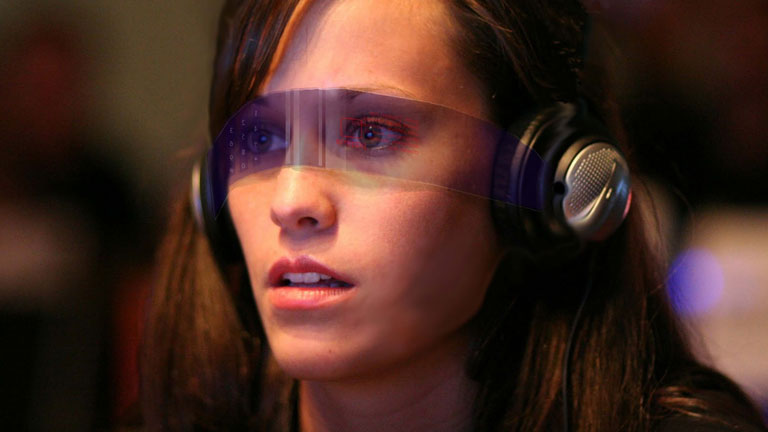
Sign up for breaking news, reviews, opinion, top tech deals, and more.
You are now subscribed
Your newsletter sign-up was successful
It’s easy to be apathetic about augmented reality. It’s been around for a long time in demonstrations and lodged into bits of apps, but never been anything close to a reason to actually buy a phone.
That’s about to change – and it could potentially revolutionize entertainment and the way we learn. In the space of two months both Apple and Google unleashed the ability to create augmented reality apps on their mobile platforms, giving developers the tools to start using the camera on phones to enhance the world around with information and games.
While both Android and iOS devices now have the power to run AR apps, Apple is making the biggest noise about it.
CEO Tim Cook told The Sun the potential of AR is: “like it was in 2008 when the App Store opened. The first apps rolled off and people said these are not very interesting.
“People will say that about AR and you can bet sometime after that they will wake up and say I cannot believe I can live without it.”
With the CEO putting out messages like that, it’s hard to not think Apple really believes this could be the biggest shift in how we use our phones in nearly a decade.
A developer's dream
Developers are excited about the possibility as well - where usually creating a new form of entertainment requires a revolutionary platform, with the launch of the software tools suddenly they have access to millions of devices able to run the games and apps.
Sign up for breaking news, reviews, opinion, top tech deals, and more.
“I’ve worked in AR for a long time, and I really like the fact that you can just...create stuff” said Dave Ranyard, Founder and CEO of VR and AR development studio Dream Reality Interactive.
“The thing that’s amazing with [ARKit] is you’ve literally got this full 3D environment. Where previously you needed a console and loads of other stuff, this is a great opportunity - it’s great to have all these iOS devices [to publish to].
Like apps, this is crucial: if there's nobody using a smartphone platform, nobody will make apps for it.
Without apps, the users won't come - it's the fate that befell Windows Phone. But with AR, the situation is reversed: loads of potential users, and now simple tools to get coding for it.
“We wouldn't have been able to touch this before [ARKit was announced]. If you even wanted to consider AR you had to work out how to do things like plane detection and for three guys in a room trying to make games, that’s huge,” said Travis Ryan, founder of Dumpling Designs studio and creator of AR title Smash Tanks!
“You’re investing all that tech into solving those problems, where the real problems you want be solving is how you actually make good games out of it.”
"We took the heavy lifting and put it in the operating system and now the developer can focus on their passions - the board game, the space app and so on,” Cook told The Sun, something many other developers really appreciated.
You point your phone and it tells you about that thing. What’s easier than that?
Craig Wareham, Augmentra CEO
Augmentra is a development studio that makes ViewRanger, a title that combines AR with real world imagery to let hikers know where they’re going, and what they’re seeing on the landscape.
“We’re a small, early stage company in Cambridge and we spent a couple of years trying to build our own AR technology to do that sort of labelling,” Augmentra CEO Craig Wareham told us.
“What’s exciting now is that Apple comes along with ARKit and it catapults everything forward. We’re able to now put more information more easily and more accurately into the environment, so we can concentrate on our app and users and not the AR tech.”
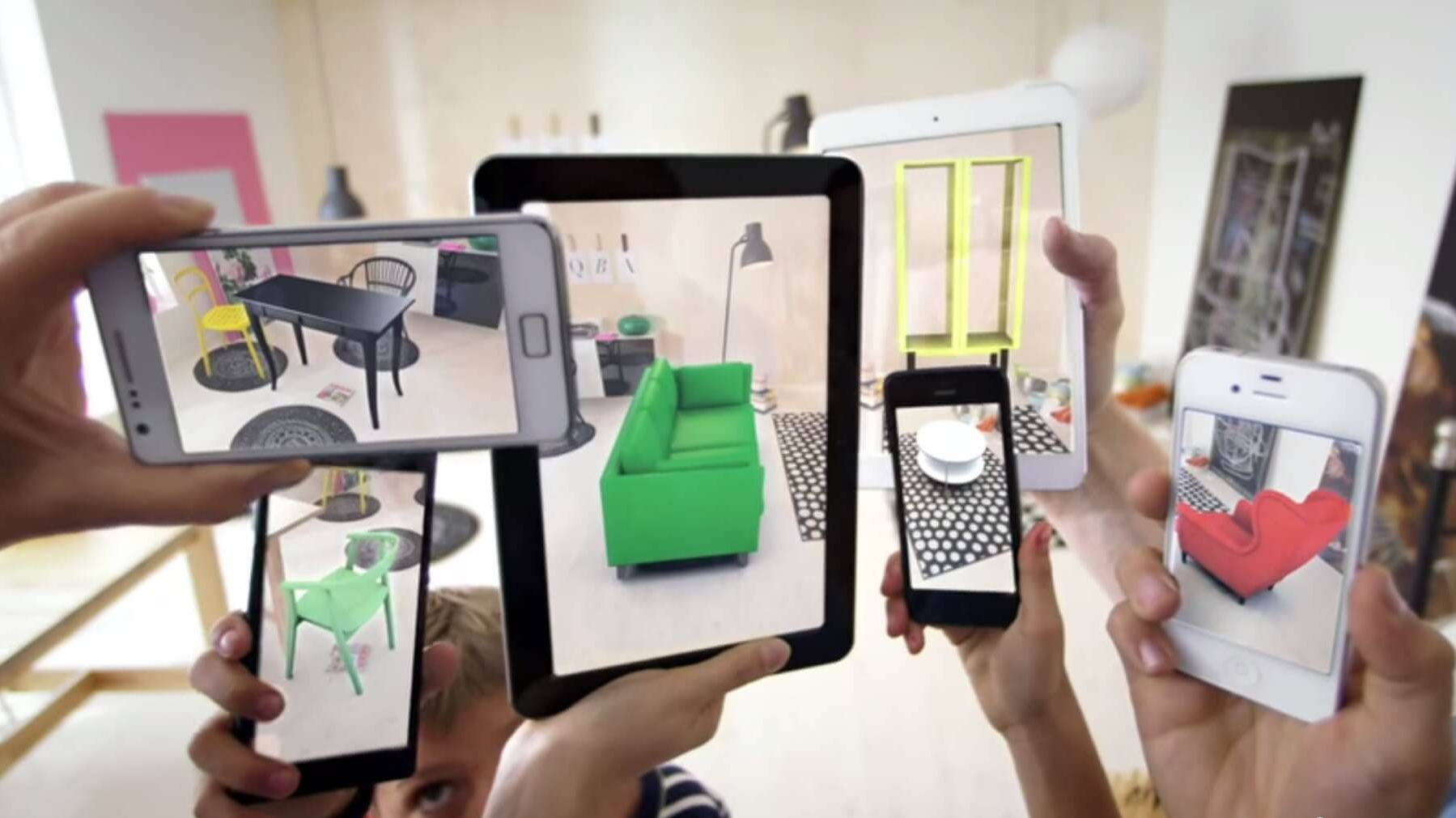
Pokemon Gone
Most people will have seen augmented reality in some form or another - the most popular being Pokemon Go, which overlaid catching pocket monsters on the real world through the phone camera.
However, it wasn't a great advert for AR, because it actually made the game harder, taxing the phone’s memory and making the flicks and spins needed trickier.
But of all the demonstrated titles we saw, the idea was to actually move in 3D space, getting closer and further away from the focal point to learn more about it, with the real world enhancing the app rather than getting in the way.
What's impressive is that within six weeks of ARKit being unleashed developers already had titles available to download - thanks to the simplicity Apple's platform offers.
While it's far, far too early to proclaim AR as the next shift in the way we use our phones, it's hard not to see it progressing from 'potential cool thing' to genuinely impressive way to interact with the world, giving us a lens to see it anew.
Where we once were told that we could see information about the sports we're watching live just by holding up our camera, now that's a reality... within months of Apple launching its platform.
Like the name, AR isn't going to change the way we use apps or play games - it's going to augment the experience.
Where you might sit back on the daily commute and play a few levels of Candy Crush, you could go home to your family, clear the kitchen table and try and smash the tanks of your offspring while moving around to get the optimum angle.
The way to think about AR is that it’s a platform - it’s like the internet.
Craig Wareham
In terms of education, it's easy to see AR being a big winner there as well - it takes the digital world but makes it more interactive and encourages curiosity, the 'what's over there, what happens if I move this?' mentality that many worry is being reduced by the sedentary lifestyle using our phones encourages.
“The way to think about AR is that it’s a platform - it’s like the internet. You know it’s going to be used in all sorts of way, and I’ve no doubt it’ll touch on every aspect of our leisure and working lives,” added Wareham. “It’s usable by everybody - young or old, it won’t matter.”
EyePhones
But there's still a slight issue - holding the phone up in front of your face still feels weird. The space to prod is small, even with phablets, but tablets are cumbersome to carry around.
The idea that you can watch a movie played out in 3D on your dining table is amazing, but you'll soon tire of holding a device out.
Throughout all the demonstrations, it became clearer and clearer where the watershed moment lies with AR: a pair of glasses that enhances everything you're looking at. Think the best spy gear from films of years gone by and you're not far off.
Playing a game or watching a film around a table? A tap on the side of the glasses will change the normal view into something extraordinary, or flick up information on the world around you.
Want to know how far away your train is? How many goals that soccer player has scored? You'll be able to call the information up with ease.
This sounds fanciful, but it's definitely something Apple's interested in exploring. The brand has been constantly documented as researching into this area, and all the efforts on show to us would instantly be improved by wearing glasses instead of holding up a phone or tablet.
You wouldn't even need a special controller to make this work, as it's possible to have the glasses recognise your hand in space as an interactive object.
But let's not get ahead of ourselves - such devices are a long way from reality, with only Google Glass and some other minor efforts making it out of the labs.
Glass was never intended as anything other than a trial, but it's somehow been used as proof that AR is going to be for the geeks - which is very likely why Apple isn't launching such hardware any time soon.
“There are rumours and stuff about companies working on [AR glasses]– we obviously don’t talk about what we’re working on,” he told The Independent.
"Today I can tell you the technology itself doesn’t exist to do that in a quality way. The display technology required, as well as putting enough stuff around your face – there’s huge challenges with that," he added.
Of course, it's a long way from certain that AR will ever take off. Even if hundreds or thousands of developers start knocking out augmented reality titles, it doesn't mean consumers will want them. Playing an AR game is active, where leaning back and tapping away at mindless titles is a guilty habit of so many.
But - just as the success of the Nintendo Wii showed that it's possible to shift the way people play console games, a shift is eminently possible if impressive and creative titles start to emerge. And with so many potential users walking around with the necessary devices in their pocket, it won't take much to kick off that movement.
5 new apps making use of ARKit
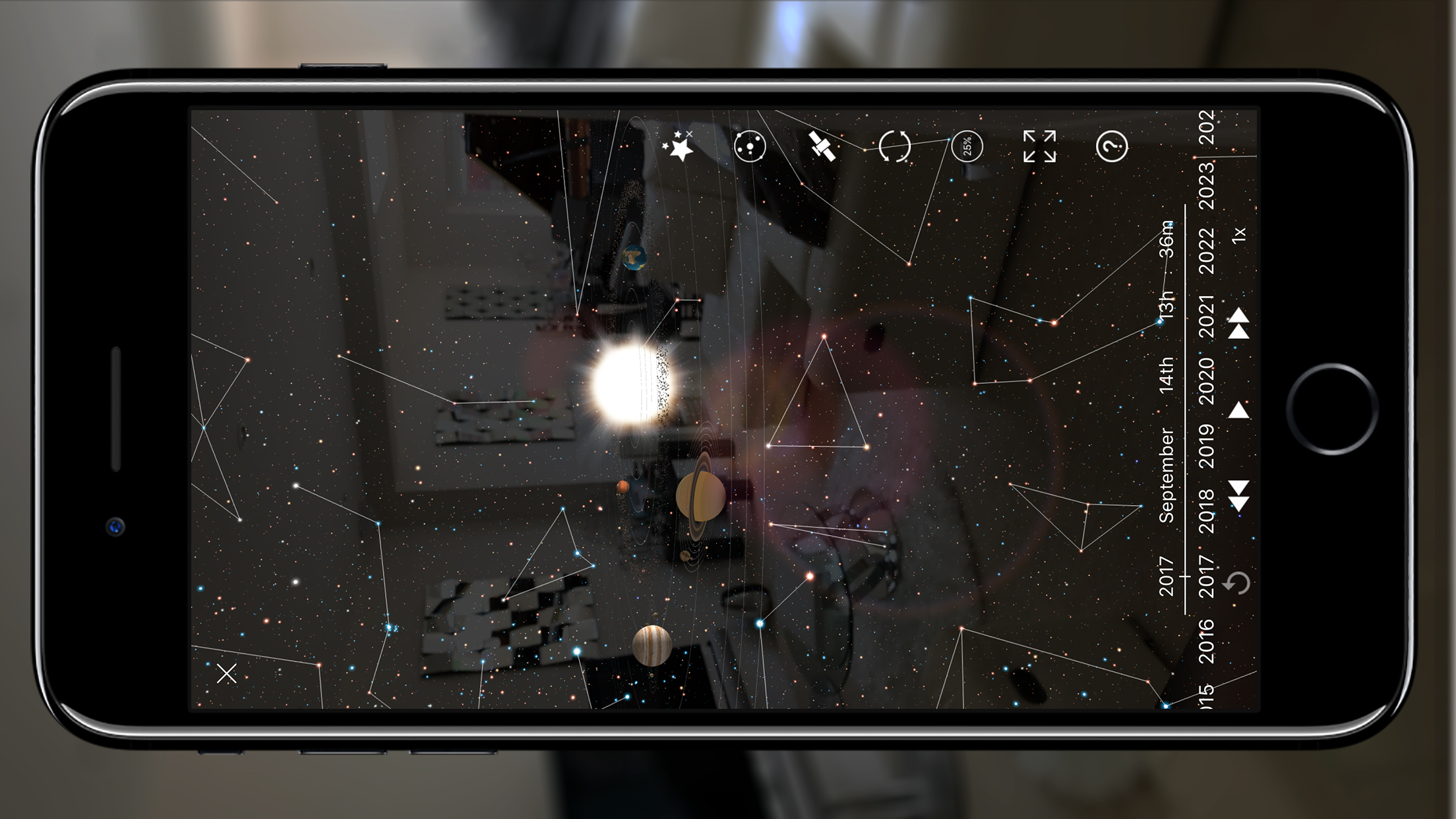
Night Sky
This is an improved version of the app that launched in 2011, allowing you to view the night sky and see precisely where the stars are.
The exciting new AR element is the ability to walk around the solar system and head straight into a planet, viewing your surroundings with a simple push of the phone.
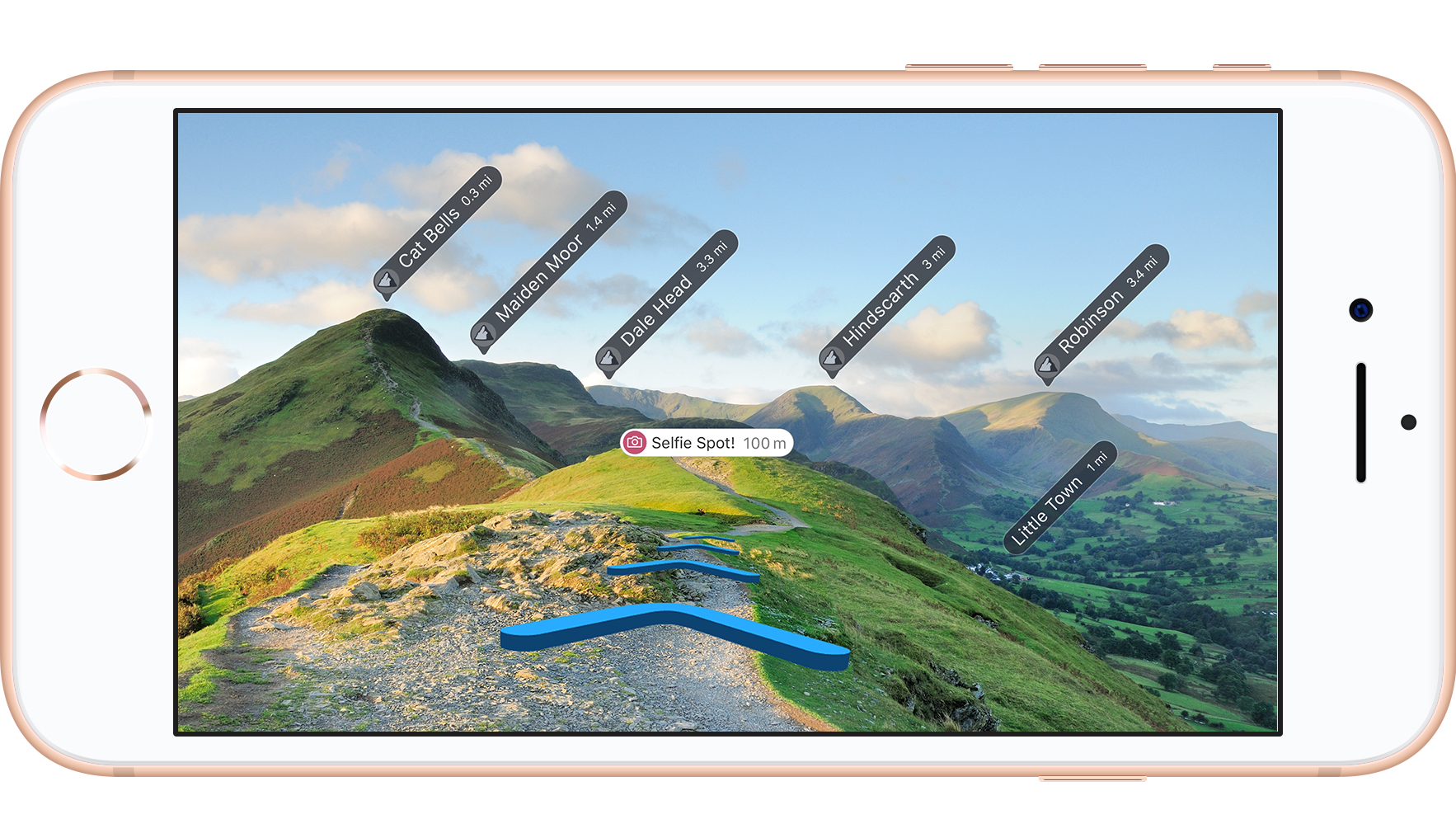
ViewRanger
This app adds in a section called SkyLine that uses the power of GPS and ARKit to help you find routes when you're offline - perfect for the hikers of this world.
It'll also show you landscapes and label the things you're looking at appropriately, as well as showing you how far you've walked with a little look to the ground.
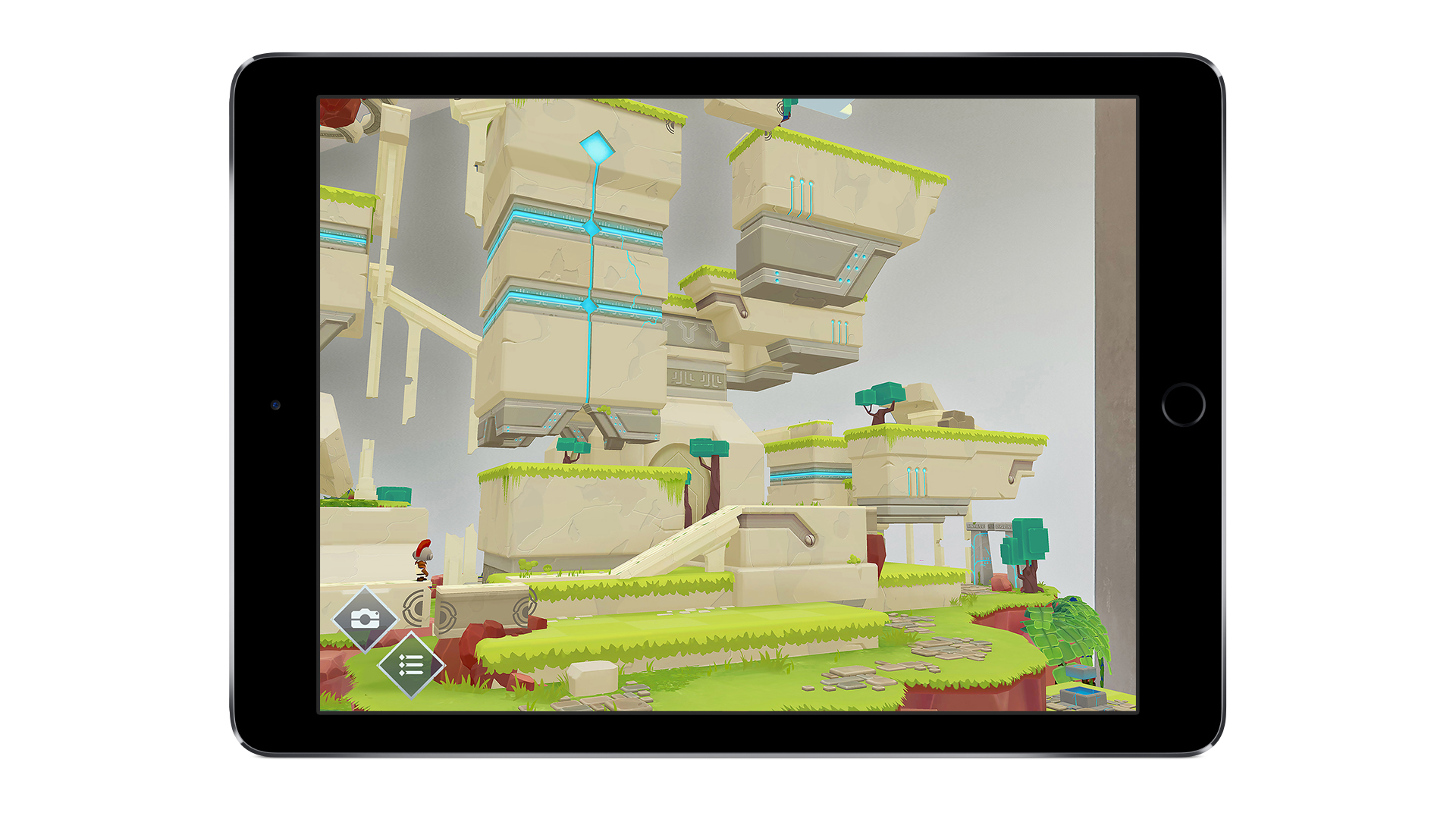
ARise
A platformer that requires you to walk around the map, you need to really use the power of AR to find the hidden perspectives to enable your little hero to run to the climax of each puzzle.
Not one for the train (although you can cheat and use your fingers) - but at completion, each floating island turns into a giant. That's nice.
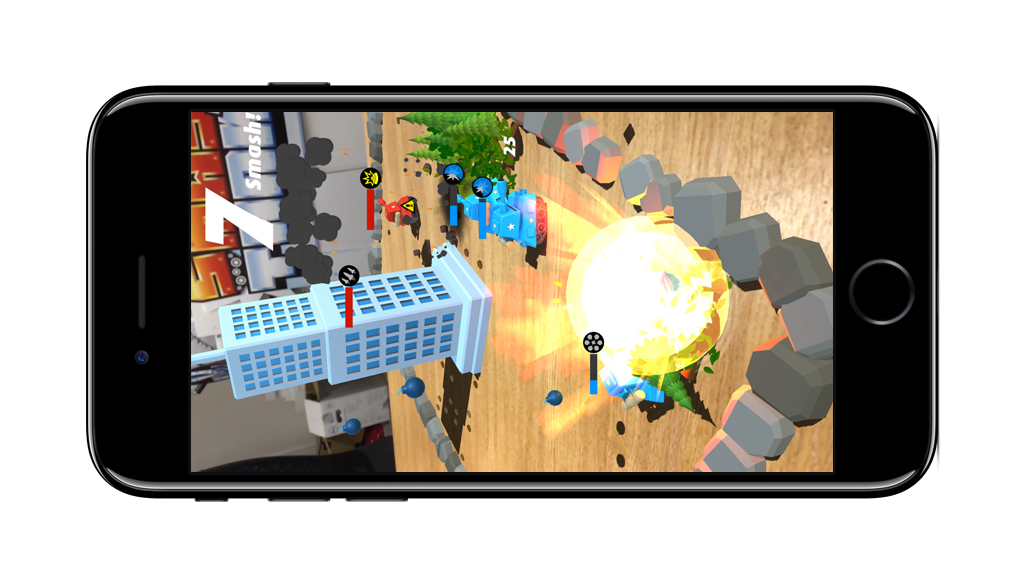
Smash Tanks!
This was one of our favorite AR games - multi-player enabled, it's like real-life pool where you need to get right down the perspective of your tank army to fling them at the enemy.
Being able to play with multiple devices is a real boost here, and once the table is found, it's hard not to get competitive with friends.
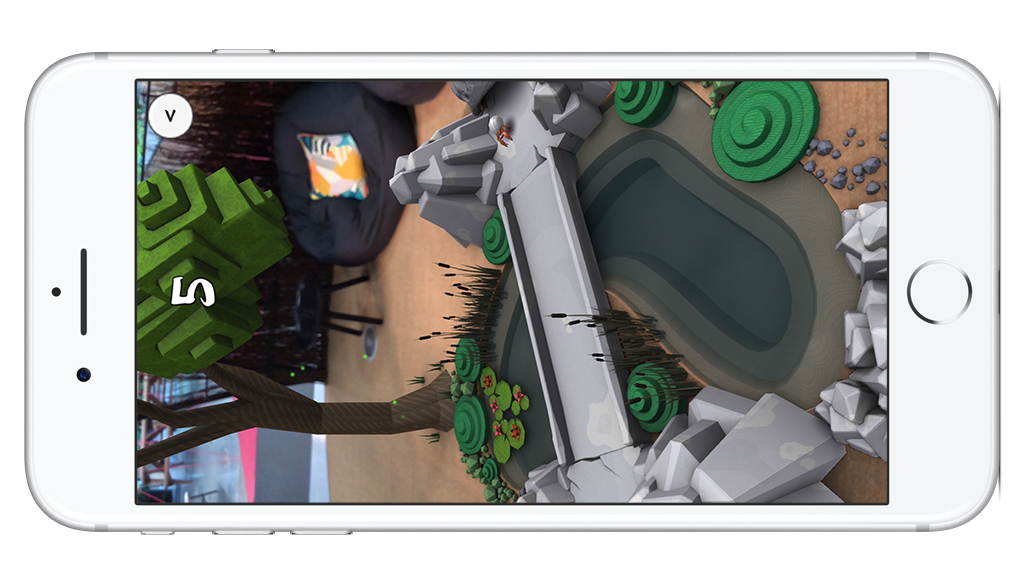
Orbu
Orbu comes from the studio whose founder who was heavily involved with the development of Playstation VR, so you'd expect AR to work well on a phone as well.
The first app, Orbu, is a game that requires you to move around an object in a kind of mini-gold way, but using angles and perspective to help you move your ball to the goal.
- If you want to try out AR, keep an eye out for a powerful but cheap phone during Black Friday 2017
- Want to know what the best phone is right now? We've got the list for you!

Gareth has been part of the consumer technology world in a career spanning three decades. He started life as a staff writer on the fledgling TechRadar, and has grew with the site (primarily as phones, tablets and wearables editor) until becoming Global Editor in Chief in 2018. Gareth has written over 4,000 articles for TechRadar, has contributed expert insight to a number of other publications, chaired panels on zeitgeist technologies, presented at the Gadget Show Live as well as representing the brand on TV and radio for multiple channels including Sky, BBC, ITV and Al-Jazeera. Passionate about fitness, he can bore anyone rigid about stress management, sleep tracking, heart rate variance as well as bemoaning something about the latest iPhone, Galaxy or OLED TV.